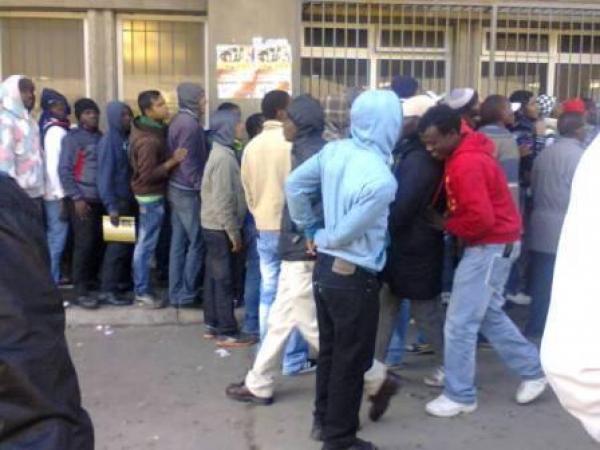Immigrants apparently unaware of new laws as government tightens up on permits

Immigrants in Cape Town might lose their livelihoods if the new regulations to the 2011 Immigration Amendment Act published in the Government Gazette on 14 February 2014 comes into effect.
While some immigrants have refugee status which allows them to study and work in South Africa, many are not aware they must also apply for trading permits from the City of Cape Town to set up businesses.
Either few immigrants interviewed by GroundUp in Bellville yesterday know they need authorisation to run a business or most pretended not to know. Many are not even aware of the Draft Immigration Regulation 2014, which the public was invited to comment on by Friday 7 March 2014.
Thabo Mokgola, an official from the Department of Home Affairs (DHA), said they are still waiting for the Minister to confirm when the new regulations will come into effect.
Even though the Immigration Amendment Act is focused more on permits, refugees are also going to be affected indirectly. Refugees might be caught in the crossfire whilst Home Affairs is clamping down on illegal practices. The new regulations will affect many immigrants. New and strict criteria will have to be met in order to get the new business visas.
On 28 February 2014 at a media briefing, Minister of Home Affairs Naledi Pandor said: “We have allowed illegal migration, we have allowed persons to set up businesses without permits, we have allowed persons to get work permits fraudulently, employers are employing persons who do not have legal status; all of these things have to be attended to and addressed by strengthening immigration in South Africa because no country allows itself to have immigration laws abused and neglected in the way that, to some degree, South Africa has allowed things to happen.”
Anthony Muteti of PASSOP believes this is an international relations matter. “I do not promote illegal immigration but from my experience, stringent rules means rules are going to be broken. For instance, there is only one South African Embassy in Zimbabwe. Applying for a work permit from their will be challenging. Obviously the embassy will not be able to keep up with high volumes of people who will approach it for work visas. In the past, when Zimbabweans needed visas to come to South Africa, it was always packed. Many people lost patience and entered South Africa illegally. This new law will promote fake and fraudulent documents … If people cannot get them legally then they will always try other ways.”
A Zimbabwean woman, Sandra Muzari, told GroundUp that this is a tense issue because most people do not qualify for the newly introduced critical skills visa. A lot of people will be deported, especially those running salons, computer shops and other small businesses. She wishes the DHA would consider what immigrants are contributing to the South African economy.
She said, “Think of the majority who are working as house maids, waiters, waitresses, shop attendants, and all the general workers who are employed right now — what will become of them? …. They are faced with deportation automatically, then what? DHA should reconsider the way they are handling the situation. Our lives are at stake. They should legalise those without criminal records if they are employed, and fish out all who are doing illegal business.”
Support independent journalism
Donate using Payfast

Don't miss out on the latest news
We respect your privacy, and promise we won't spam you.
Next: Manenberg gets bullet-proof schools
Previous: Former gang member calls for the army to pacify the Cape Flats “civil war”

This article is licensed under a Creative Commons Attribution-NoDerivatives 4.0 International License.
